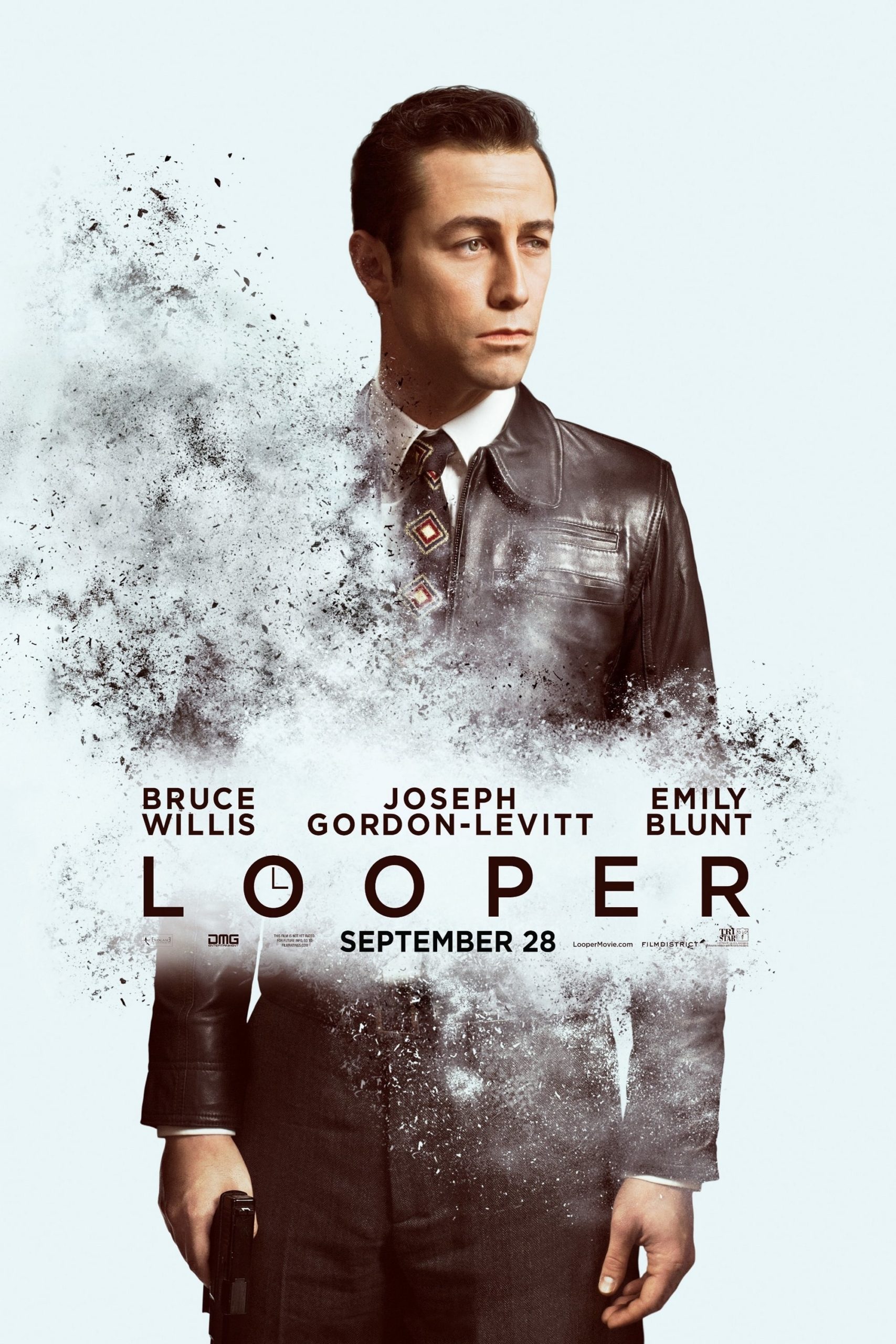
Rian Johnson – LOOPER
 – A film that plays on the narrative chronological layer and teases the viewer.
– A film that plays on the narrative chronological layer and teases the viewer.
JUST A FEW WORDS (IN THE HEAT OF THE MOMENT):
Looper, Rian Johnson’s 2012 film, although full of problems (at least in regards to our filmmaking idea and our taste for some sort of structural coherence), is an interesting film that seeks to tease the viewer by inviting him to reason through the wise use of narrative techniques.
The narrative jeu is based on an interesting intersection of chronologically distant narrative lines. Although there is some doubt on the consistency of the narrative structure – especially on the dynamics according to which, in the presence of existing and temporally distant worlds, something can be changed in the (existing, not hypothetical) future by changing the present – it is on the level of the characters that the story becomes more squared: it is along the lines of the concept of good and evil, loss, despair and revenge that the less kitschy but more interesting side of the film is articulated.
In fact, rather than breaking the loop as required by the rules of the game to which the protagonist must submit – by killing the retired variant of himself – the act that invariably modifies the “narrated world” consists in the change that happens in the loop in the moment the child doesn’t lose his guide in the world – the mother. The murder of the latter, which occurred in the previous loop variants, meant that the child, once he was grown up, was thirsty for revenge and created a world without hope and without a way out. The fact that the mother survives in this iteration generates a therefore positive effect which, presumably, interrupts the cruel loop of retirement.
Looper is a film that starts out wanting to be more or less innovative, using a narrative slightly different from the canons (albeit not excessively original), but which then finds shelter in a rather classic study of the character (and human psychology).
And, at this point, it seems natural to ask a question: who do you think the little Cid represents? Comment this article and let us know what you think.
PROS:
- The very noir atmosphere of the incipit.
- The desire to create a narrative that pushes the viewer to be an active part of the interpretative process, rather than a simple (and passive) end point of communication.
CONS:
- A little bit of narrative fraying.
- Reasoning, asking questions about why and how certain things happen, destroys the film (and invariably ruins the suspension of the film’s disbelief – or belief as according to Torben Grodal).
What do you think of this film? Please leave a comment below and let us know!
To read more of these film “pills”, please visit our dedicated section.
Or, if you’re after a more-in-depth look at some films and/or filmmaking techniques more than just a quick take on the films as we watch them, please have a look at our Film Analysis page.
GENERAL INFO:
 7.4
7.4

Photos
See all photos >>






